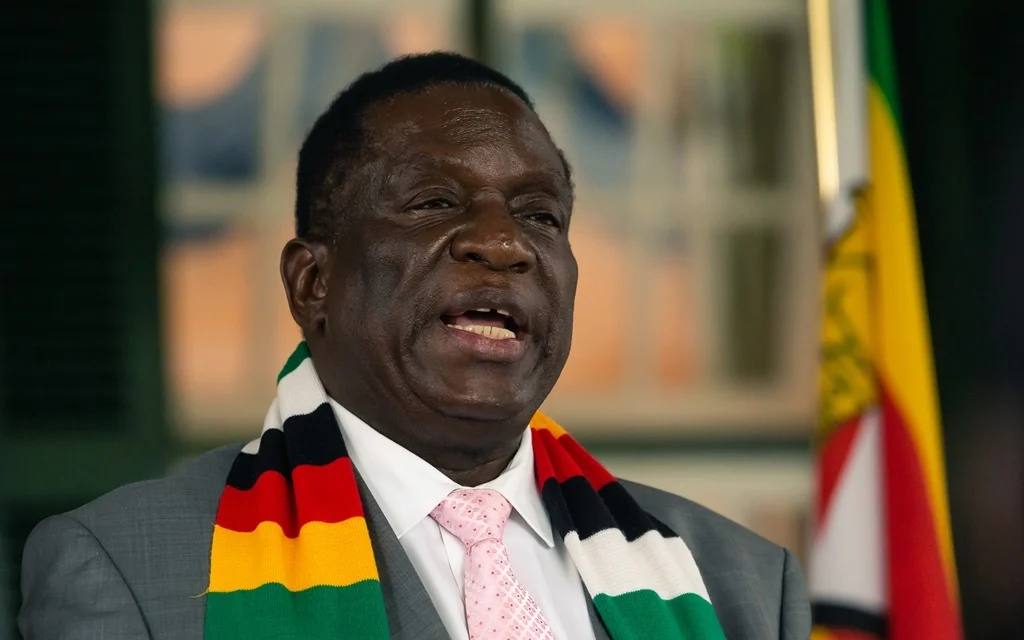
EBEN MABUNDA THE latest economic pronouncements by President Emmerson Mnangagwa communicate everything but “Zimbabwe is open for business,” as the government extended a heavy hand to interfere with the markets, dampening investor confidence, which was already in a deficit.
On Saturday, the President introduced a Capital Gains Tax (CGT) for institutional Investors of 40% for a holding period of less than 270 days and held the CGT at 20% for more than 270 days, while the Capital Gains Withholding Tax (for Retail Investors) was left still at 2%. This, in a bid to “deter speculative buying and selling of shares,” as the government once again blames the stock markets for the country’s economic melt-down whose inflation came in at 94% in April, against a local currency that has shed 43% of its value in 2022 alone.
The move only adds to the bad streak of government’s record of tempering with the markets through inconsistent policies, scaring away local and foreign investment to the country.
Our government seems ignorant of the fact that the activities of investors on the capital markets are not the cause of economic failure but a knee-jerk to the economic indications in any economy. With Zimbabwe’s economic wheels falling off, the local equity markets had proven a safer haven for both institutional and retail investors over the past two years as the Zimbabwe Stock Exchange (ZSE) was the best performing market on the continent in both real and nominal terms.
The market’s All Share Index (ASI) scaled up 1056% and 311% in 2020 and 2021, respectively. As of Tuesday this week, the market was up over 146% Year-to-Date. Worryingly, foreign investor confidence on the ZSE diminished in April as foreign inflows narrowed -22% to a three-months low of ZW$609 million (US$3,6 million), extending a falling trajectory from the previous month.
At the same time, foreign outflows mounted 46% as foreign investors liquidated their portfolios in the face of economic uncertainty in Zimbabwe. Zimbabwe’s property market is inflated (setting aside the liquidity conundrum) with serious questions on the true values of properties raised.
Its money markets perform sub-optimally, compounded by a dead bond market, ignoring savings-not forgetting the hustle of investing in crypto assets as the country is financially excluded from the rest of the world. This makes the stock markets an investment destination of choice for retail and institutional investors, who find the market as a safe haven for their funds.
I, therefore, expect the market to continue moving northwards despite the unfriendly tax regime with a negative trend expected in the interim. In June 2021, government suspended trading on the ZSE for five weeks in a 2008 déjà vu, which saw trading suspended for three months until February 2009, after Zimbabwe established record high inflation and a currency collapse.
- Chamisa under fire over US$120K donation
- Mavhunga puts DeMbare into Chibuku quarterfinals
- Pension funds bet on Cabora Bassa oilfields
- Councils defy govt fire tender directive
Keep Reading
In 2020, the government blamed fungible stocks PPC, Old Mutual (OM) and Seed Co International for capital flight and for steering the collapse of the Zimbabwe dollar. Nearly two years on — PPC and OM remain suspended from the ZSE.
Fraser Institute’s ‘Policy Perceptions Index,’ which assesses overall policy attractiveness for investment globally, rated Zimbabwe last in Africa and eighth worst globally. Justifying, Zimbabwe’s poor rating, the report indicated:
“Uncertainty regarding the administration, interpretation, or enforcement of existing regulations, the country’s legal system, its taxation regime, its infrastructure, trade barriers, its political stability, and security were major areas of concern that discouraged investment in the country (Zimbabwe).”
Foreign Direct Investment (FDI) inflows to Zimbabwe doubled to US$745 million in 2018 from just US$345 million in 2017 before plummeting 62% to a paltry US$280 million in 2019 and plunging to US$194 million in 2020. The government must remove its hand from the markets, create an investor friendly environment, which bolsters capital inflows, establish a sound social contract, ensure policy consistency and lend an ear to the clamours of the private sector.
- Mabunda is an analyst and TV anchor at Equity Axis, a leading financial research firm in Zimbabwe. — [email protected]











